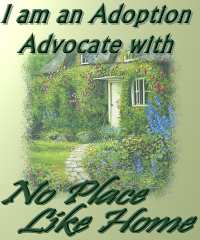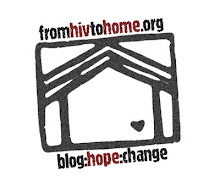Erin Kerley, center, plays with Simon, 4, and Sarah, 23 months — orphans adopted from Ukraine — as their new sister, Bethany, 6, looks on at Townshend’s Tea House in Bend. The challenges of adoption, the expanded Kerley family is discovering, are far from over, and Erin is finding her three children constantly fighting for attention.
Photos by Melissa Jansson / The Bulletin
New language, new culture, new family
Going overseas to adopt Simon and Sarah, who were adopted from Ukraine, have lived in Bend for just 10 weeks. For them — and for their new big sister, Bethany — adjusting has often been overwhelming.
By Sheila G. Miller / The Bulletin Published: June 15. 2008 4:00AM PST
Erin Kerley, 32, cleaned the bathroom, while her husband, Rob Kerley, 33, tried to keep the children out of her way.
Rob twirled Sarah, 23 months, through the air and 4-year-old Simon tried to help his mother by sweeping the dining room and kitchen floors. Across the street, 6-year-old Bethany doted on a neighbor, helping her with chores.
The in-laws were coming to town, and there was work to be done.
But the Kerleys aren’t just any family.
Until 2½ months ago, Erin, Rob and Bethany lived quietly in their craftsman home on the east side of Bend. Now they’re in the midst of the challenge of a lifetime. After 3½ years of paperwork, squabbling and travel, the family has adopted Simon and Sarah, Ukrainian orphans. And now the hard work of helping the kids feel safe and welcome in Bend is just beginning.
Erin first knew she wanted to adopt a child in late 2004.
“It’s a God thing,” she said.
It started at the gym, where she ended up watching a show about adopted children. Next she came across a magazine article about adoption. Another day, she turned on the radio and a segment was playing about adoption.
It was all around her.
“It sounds like a long string of coincidences,” she said. “But you step back and say there’s no way that many things are a coincidence.”
The Kerleys decided to adopt through America World, a Christian organization that processes adoptions. They felt called to adopt from Ukraine, where many children are in orphanages because of intense poverty.
Once Erin and Rob decided to adopt, they realized just how hard it would be. But they persisted.
After years of tribulations that included paperwork glitches and a government shutdown on adoption, the family headed for Ukraine.
“We felt like, these kids are ours, and they’re not here,” Erin said. “The year (the country) closed down, we thought we’d switch to China. We prayed about it. But Ukraine is where they were.”
The Kerleys traveled nearly 6,000 miles to Ukraine in February with an eye toward adopting at least one child. When they arrived at Antoshka Orphanage in Kramatorsk, Erin said it looked like a typical former Soviet orphanage, with bare walls and an institutional feel. Ukraine was part of the former Soviet Union.
The children at the orphanage were separated by age group, with the infants all in one area.
“There were quadrants of beds, with a dirty blanket and a pillow,” Erin said. “Then there was a main room where they ate, mostly soup and bread. Most of their life took place in the great room.”
Both the children were small, at less than the fifth percentile of the growth chart for both height and weight, meaning they lagged behind 95 percent of children. Sarah, now nearly 2, was tiny. She didn’t speak, and she didn’t cry.
“She would smile, but it was fake,” Erin said. “It was more like playing with a doll.”
The kids couldn’t be taken from the orphanage, so each day Erin, Rob and Bethany would arrive at 10:30 a.m. and 4:30 p.m. for 112- hour visits.
After visiting with the child, parents can decide to move forward with the adoption. If all is in order, a judge then grants the parents custody at a court hearing. But because of a hang-up in Sarah’s paperwork, the court hearing and adoption finalization were delayed for weeks.
Bethany, whose brown hair and eyes matched Simon’s and Sarah’s, had been keeping up with schoolwork by using education software. But during the trip, she was stricken by the Ukrainian flu and nearly died. After eight weeks in Ukraine, Bethany and Rob returned to the U.S. so Rob could get back to work and Bethany could return to school.
To help out, Erin’s mother, Mary Davis, of Bend, made the trip from Bend to Kramatorsk in early April.
Davis described the orphanage as bleak.
“They’re doing the best they can with what they have, and they don’t have a great deal,” she said. “To me it looked like the 1950s, and it looked like all the pictures out of Russia from the 1950s.”
Davis said Simon was still a little unsure of his new family, but that Sarah was accepting of the attention.
“The first time I saw her, my heart just jumped in my throat. I was so happy,” Davis said. “I was kissing the back of her hand, and she would hold it up to kiss it.”
Finally, it was time for the court hearing. Passports were issued for the children, and then, after much haranguing and 11 weeks in Ukraine, the adoption was finalized. Erin was going home with two new children.
When the four finally boarded a plane in Kiev on April 5, they faced 27 hours of travel.
The group traveled from Kiev to John F. Kennedy International Airport in New York, then to Portland.
“It was hairy,” Davis said.
When they touched down in New York City, Simon and Sarah were U.S. citizens.
Getting comfortable
Just because Simon and Sarah had arrived in Bend didn’t mean the hard part was over.
The Kerleys had expected to spend about $25,000 in the entire adoption process. But all told, the Kerleys estimate that adopting two children and spending 11 weeks out of the country cost them more than $50,000.
To handle the burden, Rob now works mornings at UPS sorting packages. That provides him with benefits and allows him to spend the rest of the day doing what he loves, custom home design for Lasting Traditions, which he owns. But work in some ways had to take a back seat.
The newness was overwhelm- ing.
Simon and Sarah, who share the same biological mother, have dark brown eyes and hair, smooth skin and big smiles. But those smiles weren’t always evident, especially in the first days.
Simon had never seen a dog before, so the Kerley’s dog, Barky, terrified him. That wasn’t the worst part, though. In the orphanage, Erin said, he was only allowed to use the bathroom twice each day. So he would wait and wait, often urinating in his pants. He also went through a phase where he bit and scratched Erin. Her arms bear the scars to prove it.
“Simon had been handled, not raised,” Rob said.
When he got a treat, like a cookie or a toy, he’d hide it under his legs, as he’d done in the orphanage to keep other kids from taking it. And Simon never seemed to rest, instead choosing to pace back and forth or run around with a toy.
Sarah handled things differently. At first, she didn’t cry at all. Then she began crying all the time, even crying herself to sleep for a while. Because she’d been treated like a baby, even as she neared age 2, she didn’t know how to feed herself or walk. Her only form of communication seemed to be tantrums on the floor, screaming at the top of her lungs.
When she sat down to eat, she would polish off adult-size portions. Sometimes she’d eat until she threw up.
Many of the families the Kerleys have been in touch with about adopting read books about what to expect from adopted children, as well as books about attachment disorders, when children struggle to form relationships with their adoptive parents because of past traumas. Erin didn’t read the books. One day, she flipped through them but was frustrated by the chapters about self-esteem and cultural differences. They didn’t really relate to what she was going through.
“It was like, respect the homeland, which is nice,” Erin said. “But I’m trying to get him not to pee his pants on purpose, to get him not to bite me.”
Adam Pertman, executive director of the Evan B. Donaldson Adoption Institute in Boston, said these sorts of behaviors are common in adopted children.
“There’s a lot of adjusting they have to do. It’s going to take sometimes months and sometimes years,” Pertman said. “These aren’t infants who don’t know anything. These are human beings who have had life experience already, and it can be tough.”
It’s not just getting used to a new language and a new culture. They also must face new relationships.
“You cannot live in an orphanage and not be affected by it. Those are not ideal circumstances,” Pertman said. “So these are kids who are trying to make a major adjustment in their lives, carrying some real loads on their backs to do it.”
But Pertman said most children show progress quickly, like Sarah and Simon have, although some will have serious attachment issues.
“What I can say generically is that you can’t expect them to experience orphanage life and not be affected,” Pertman said. “The likelihood, the common eventuality, is that they’re going to be good and fine, and everybody will be a beneficiary.”
It wasn’t just Sarah and Simon going through big changes. Bethany also struggled to deal with her new brother and sister.
She was jealous and started needing more attention, asking for more stuff at the grocery store and vying for time alone with her mom and dad.
“It’s like the princess dethroned in a coup,” Erin said, laughing. “She either loves them, or she can’t wait for them to go home.”
Bethany had a harder time with Simon, Erin said, because he didn’t always do what she said.
“She had periods of extreme jealousy,” Rob said. “But she is inherently mature and capable. She’s far better than most 5- or 6-year-olds.”’
Improvements across the board
Now that the children have been living in Bend for 212 months, the changes are clear. Many of the changes came naturally. Erin and Rob have worked hard to treat the adopted children just as they would Bethany, to have strong, clear expectations of them. Erin makes each of the children put away their own laundry; Rob refuses to make Simon a special meal just because he doesn’t like something.
And they shower the kids constantly with positive praise, hugs and kisses. They’re making it clear they’re not going to abandon the children.
On Tuesday, Sarah will turn 2. Just four months ago, she was teetering around, taking her first steps. Now, she’s running, learning to climb steps, and perhaps most importantly for the family, she’s started being friendly.
Much of the change is evident in Sarah. She’s growing like a weed, has learned to stop eating when she gets full and she’s showing more personality.
“Before she was more of a mouth,” Rob said, someone who just ate and cried. “Now she has more of a distinct personality. She has expressions. And there’s more of a range of emotions than just being upset. She’s generally happy.”
Erin said when Sarah first arrived home, she was “outraged” that she was expected to learn how to walk and feed herself, and try new things. Now she’s accepted it, drinking out of a sippy cup and trying to speak. On Thursday, she climbed over the step leading into the house, giggled when Rob lifted her, and smiled at her sister and brother.
“It was better than I’d expected,” Rob said. “They’re both very healthy, which is essentially an impossible thing. They’re both healthy and smart, and they’re adapting.”
Simon has also caught on quickly. He understands English, and is speaking in four- and five-word sentences.
He’s started eating more, after struggling with foods that weren’t served at room temperatures or that had flavors. The first time he tried ice cream, he spit it out.
Now, though, Simon is testing authority.
“He’s convinced he’s the boss,” Erin said. “He’s trying to pit Rob and I against each other, kissing and hugging one of us and ignoring the other one.”
Once, he ran away from Erin in the parking lot, and she told a friend how upset it made her, and how she thought it was that he’d never interacted with cars in Ukraine. The friend told her she’d had the same experience with her son. Trying to distinguish between little-boy behavior and orphan behavior, the couple said, is one of the challenges.
And Bethany, too, is accepting the changes.
“She’s doing better. She’s accepted Simon as a brother rather than as a regretful roommate,” Erin said. “She doesn’t talk to us about sending them back as often.”
It’s hard when you’ve been the center of the universe, just like every firstborn child,” Davis said. “She is working very hard. If Simon hurts himself, she runs to comfort him. Learning to share has been a little difficult.”
Davis said she knew Bethany was really making strides when one day recently she asked to talk to Simon on the phone.
“She’s doing big-sister stuff,” Davis said.
The Kerleys say they’ve had plenty of help to make the transition more smooth. Their friends at Eastmont Church threw them a shower. And Mary and Jim Davis, Erin’s parents, have helped out as well.
On Thursday, Bethany celebrated her last day of kindergarten and spent time lounging on the lawn with Simon. Next year, the family hopes Simon will be ready for pre-kindergarten classes. To prepare him, he’ll attend some summer classes at Eastmont Community School. He’s excited to go to school and hopefully help him improve his English.
Still, the challenges aren’t over.
“Yesterday, there was a struggle for attention. One of the kids jumped on my lap, and the other two were fighting for it. So I had to switch every few minutes,” Erin said Thursday.
To Rob, the kids’ history in the orphanage doesn’t mean a get-out-of-jail-free card.
“Life isn’t going to hand something to you because you’re an orphan,” he said. “He’s not going to get a half-point off his mortgage.
“We can’t change their past. We can only go forward from here.”





















1 comment:
GREAT post, RMJ! Lots of good info for adoptive families!
Post a Comment